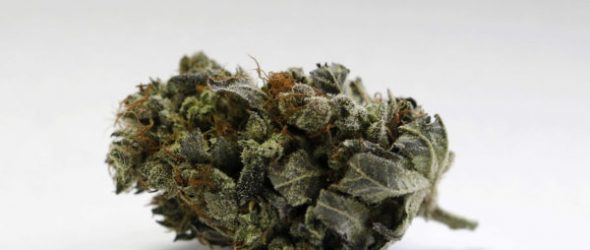When a Maine State Police trooper pulled Richard Tonini over for a traffic infraction in July 2018, he found 5½ ounces of marijuana, $5,000 cash and two handguns in Tonini’s car.
He faced two charges — unlawfully furnishing scheduled drugs and possession of firearms prohibited for certain persons. A Hancock County jury earlier this year found Tonini not guilty of the drug furnishing charge but guilty of the firearms possession charge.
Now, Tonini, 58, of Bucksport is challenging the law behind that firearm possession charge, calling it “unconstitutionally vague” because it effectively prohibited someone in possession of marijuana — a certified medical marijuana patient who can legally possess up to 8 pounds of the substance — from possessing a firearm.
Tonini’s attorney, Max Coolidge of Ellsworth, has appealed the conviction — for which Tonini had to pay a $350 fine — to the Maine Supreme Judicial Court. In a 29-page brief filed in late September, Coolidge wrote that the law Tonini was found guilty of violating is a “vague criminal statute” that “violates due process because it fails to give citizens effective notice of prohibited conduct.”
The law in question prohibits anyone from possessing a firearm who “is an unlawful user of or is addicted to any controlled substance and as a result is prohibited from possession of a firearm” under federal law.
In his brief, Coolidge argues that the law does not provide people with fair notice that they could be barred from owning firearms, and he writes that the law’s vague language could “encourage arbitrary and discriminatory enforcement.”
Voters approved legal adult-use marijuana at the polls in November 2016. Years before, in 1999, Maine had passed a law allowing medical use of marijuana.
Given the not guilty finding on the drug furnishing charge and Maine’s laws allowing use and possession of marijuana, Tonini’s “underlying conduct — the medicinal or recreational use of marijuana — is not objectionable to the state and does not rise to the level of a public safety concern that would justify a total ban on firearms for the affected class of persons,” Coolidge wrote in his brief.
“To the contrary, a majority of voters has acted to legalize such use and the Legislature has taken steps to develop a regulatory framework for a marijuana industry in Maine,” he wrote. “Under current law pertaining to the use and possession of marijuana, the State of Maine has no compelling interest in preventing marijuana users from exercising their Second Amendment rights.”
It is important to note that Tonini was never found to be addicted to or to have used marijuana, Coolidge wrote.
According to jury trial transcripts, the arresting officer, Trooper Travis Chapman of the Maine State Police, “did not observe any signs that Tonini was or had recently been using marijuana. Tonini did not appear intoxicated. Chapman did not smell smoke or observe any pipes or other smoking paraphernalia,” Coolidge wrote.
Tonini told Chapman that, as a certified medical marijuana patient, he was allowed to have 8 pounds of marijuana.
Hancock County Deputy District Attorney Toff Toffolon is scheduled to file a brief in response by mid-November. District Attorney Matthew Foster declined to comment on the matter on Tuesday.
If the court ultimately sides with Coolidge, Tonini will have the $350 fine he paid returned to him and his record cleared of the episode, Coolidge said.
Coolidge said he hopes the court will address the case within the next year. The Legislature could also change the law in line with his brief, he said.


